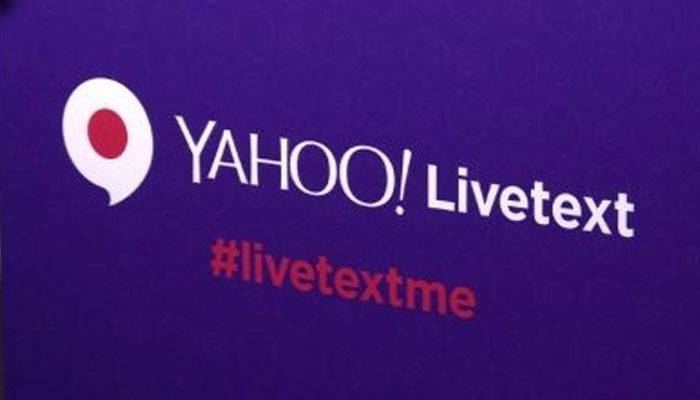San Francisco: Yahoo launched a next-generation messaging platform Thursday in an ambitious bid to steal a march on a crowded field, as rumors swirled that the Internet pioneer is considering selling its core business.
New Yahoo Messenger apps were released in English for smartphones or tablets powered by Apple or Android software, as were versions of the service tailored for use on the Web or on desktop computers.
The updated instant messaging platform is replacing its predecessor in Yahoo’s free email service, which boasts 225 million monthly users.
It is the first complete remake of Yahoo Messenger since it was introduced 17 years ago and comes as smartphone lifestyles have led to a booming trend of firing off digital missives or photos at nearly any opportunity.
Yahoo is up against some well-established rivals such as WhatsApp, Snapchat, iMessenger and Facebook Messenger.
“Yahoo decided it was time to build a ground-up rewrite of the platform that was completely modern and prepares Yahoo to ship really disruptive innovative features,” Yahoo Messenger senior director of product management, Austin Shoemaker, said while giving AFP a look at the platform.
The new messaging service integrates features from Yahoo-owned Flickr, Tumblr, and Xobni, according to Shoemaker.
Yahoo Messenger lets people quickly share large batches of high-resolution images, and taps into the library at blogging platform Tumblr to let people add animated GIFs to conversations as easily as inserting emojis.
– Making messages vanish –
The ability to “unsend” comments or images was also added to Yahoo Messenger. Posts that are “unsent” vanish from conversation threads at the service.
“We are glad to be blending ephemeral messaging and persistent messaging in a novel way,” Shoemaker said.
“It’s way better than having no control at all.”
New Yahoo Messenger also lets people “mute” conversations to be spared from being bothered by notifications when they would rather focus their attention elsewhere.
Yahoo is smoothing the transition from the old to the new version of its messenger service, helping import contact lists and making sure people can connect with one another regardless of which they use.
The old version of Yahoo Messenger will be eventually phased out, according to Shoemaker.
He billed the redesigned service as a “solid foundation” for creatively weaving messaging into other Yahoo online properties, apps or services.
There were no immediate plans to monetize Yahoo Messenger. But, Shoemaker noted, such services are proven to attract and engage users, which should lead to opportunities for generating revenue.
“The messaging space has grown dramatically, yet people ultimately want a fast and easy way to communicate with each other,” said Yahoo senior vice president of engineering Jeff Bonforte.
“The new Yahoo Messenger was designed first and foremost to meet those needs.”
The transformed Yahoo Messenger arrived as reports circulated that members of the board at the Silicon Valley firm are mulling whether it should sell its core business instead of its Alibaba stake.
A hedge fund with a stake in Yahoo urged the Internet giant last month to drop its planned spinoff of its stake in China’s Alibaba and instead sell the “core” search business.
The hedge fund was worried about the plan to transfer the Alibaba stake to the new company and distributing stock in what could amount to a taxable gift of $30 billion to shareholders.




 Driving Naari Programme launched in Chandigarh
Driving Naari Programme launched in Chandigarh































